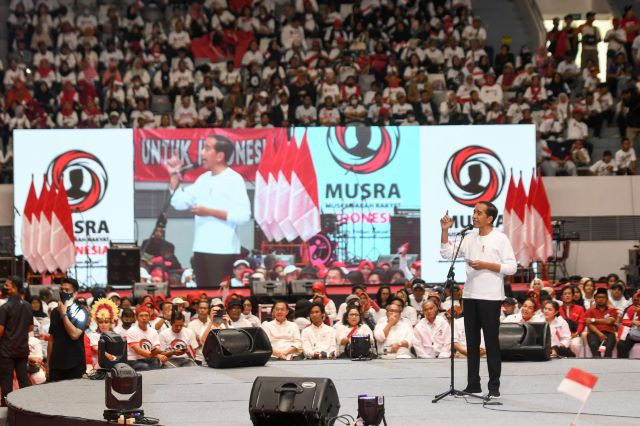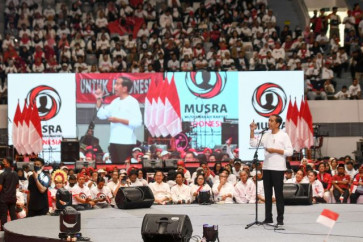Popular Reads
Top Results
Can't find what you're looking for?
View all search resultsPopular Reads
Top Results
Can't find what you're looking for?
View all search resultsCabinet reshuffle and a shift of Jokowi’s political stronghold
Jokowi's rival is no longer his long-time adversary, Prabowo Subianto, but rather his own political matron-turned-competitor, Megawati.
Change text size
Gift Premium Articles
to Anyone

The recent appointment of Budi Arie Setiadi as communications and information minister has divided the public. It is important to note that the controversy may have been sparked by Budi's political trajectory.
Budi, a loyalist of Jokowi and the founder of the largest pro-Jokowi volunteer group, Projo, has faced criticism due to his bold maneuvers to overshadow the Indonesian Democratic Party of Struggle (PDI-P), the president's party. He organized massive people gatherings known as Musyawarah Rakyat (People's Assembly), which took place in 30 provinces and primarily aimed to endorse specific candidates for elections. Regardless of the criticisms from the PDI-P executives, this is a relatively new "political innovation" that utilizes volunteers as a central driving force in proposing candidates and strengthening Jokowi's credentials as a power broker, if not kingmaker.
Therefore, what is even more significant than Budi's bravery is that he represents a completely independent stronghold that operates outside any formal and official political structure. The extensive and robust network of volunteers has no direct affiliation with the PDI-P, yet it operates as a quasi-political party. Jokowi's vast volunteer base has systematically promoted the President's agenda, consistently framed Indonesia's successful achievements under Jokowi's leadership, and most importantly, effectively utilized their numbers as a bargaining chip.
Conversely, the PDI-P has been grappling with an ongoing internal debate regarding the party's future leadership. The ruling party appears to have failed in maintaining its strong grip as it did in the 2014 and 2019 elections. Since announcing Ganjar Pranowo as the presidential hopeful, the PDI-P has struggled to address the potential rift that poses the greatest danger: how to provide Jokowi with ample space to pursue his own agenda without being coerced by the party's chairwoman, Megawati Soekarnoputri, who seeks to demonstrate her own political influence.
This ironic twist means that Jokowi's rival is no longer his long-time adversary, Prabowo Subianto, but rather his own political matron-turned-competitor, Megawati.
The appointment of Budi thereby can be seen as one of the safest ways for Jokowi to distance himself from the influence of the PDI-P and Megawati. Jokowi has openly rejected the option of selecting a minister from the PDI-P, which may indicate his desire to establish his own political legacy independently.

However, how do we assess the prospects of Jokowi's volunteer network in the current context? While it might be effective in previous elections, can it guarantee another success story and elevate Jokowi's status in the post-election period?


















